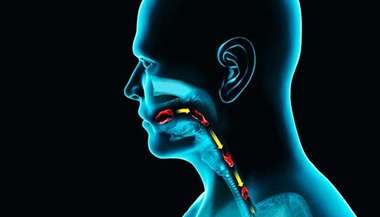Peritonitis
What is peritonitis?
Peritonitis is a redness and swelling (inflammation) of the tissue that lines your belly or abdomen. This tissue is called the peritoneum. Peritonitis can be a serious, deadly disease.
What causes peritonitis?
Peritonitis is caused by an infection. Bacteria can enter the lining of your belly from a hole in your gastrointestinal tract. This can happen if you have a hole in your colon or a burst appendix.
Other causes are:
-
A hole in your stomach, intestine, gallbladder, uterus, or bladder
-
An infection during treatment for end-stage kidney (renal) disease (peritoneal dialysis)
-
An infection of fluid in the belly from end-stage liver disease (cirrhosis)
-
Pelvic inflammatory disease in women
-
Surgery (if bacteria enter your belly during surgery)
-
Trauma (if bacteria enter your belly during trauma)
What are symptoms of peritonitis?
Each person’s symptoms may vary. They may include:
-
Severe belly pain that gets worse with any motion
-
Nausea and vomiting
-
Fever
-
Sore or swollen belly
-
Fluid in the belly
-
Not being able to have a bowel movement or pass gas
-
Less urine than normal
-
Thirst
-
Trouble breathing
-
Low blood pressure and shock
These symptoms may look like other health problems. Always see your healthcare provider to be sure.
How is peritonitis diagnosed?
It’s important to find out right away if you have peritonitis. It can lead to severe health problems very quickly.
Your healthcare provider will look at your past health. They will give you an exam. Peritonitis is often diagnosed by looking at a sample of the infected fluid taken from the belly.
Other tests you may need are:
-
X-rays. These imaging tests make pictures of your body’s tissues, bones, and organs.
-
Blood, fluid, and urine tests. These tests are done to find out what is causing the infection.
-
CT scans. These imaging tests use X-rays and a computer to make pictures of the body. CT scans show detailed images of any part of the body. This includes bones, muscles, fat, and organs. They are more detailed than standard X-rays.
-
MRI. This is an imaging test that uses a strong magnet, radio waves, and a computer.
-
Surgery. If you are very ill, you may have surgery to find and remove what is causing the infection.
How is peritonitis treated?
Get medical care immediately. Peritonitis can lead to serious health problems very quickly.
You will be admitted to a hospital. You will be given IV (intravenous) infection-fighting medicines (antibiotics). These will treat the infection.
If you have organ failure, you may also be given other treatments.
You will likely need emergency surgery to find and remove what is causing the infection. This is done when the infection may be caused by these and other conditions:
-
Redness and swelling (inflammation) of your appendix (appendicitis)
-
An open sore in your stomach or intestine (perforated peptic ulcer)
-
Swelling in small pouches in your colon (diverticulitis)
What are possible complications of peritonitis?
Peritonitis can cause severe health problems. It can be deadly if not treated right away.
Peritonitis can make fluid fill up in your belly. This can cause severe fluid loss or dehydration.
If peritonitis isn’t treated, the infection can quickly spread through your body. This can cause an extreme response from your infection-fighting system (immune system) called sepsis.
Sepsis is a fast-moving, serious health problem. It happens when chemicals sent into your bloodstream to fight the infection cause a widespread inflammatory response in your body This can slow blood flow, decrease oxygen getting to your tissues, and hurt your organs.
Severe sepsis can cause your body to go into shock. It can lead to organ failure and death.
When should I call my healthcare provider?
Peritonitis can cause severe health problems. It can be deadly if not treated quickly. Call your healthcare provider right away or get medical attention right away if you have any symptoms of peritonitis.
Key points about peritonitis
-
Peritonitis is a redness and swelling (inflammation) of the lining of your belly or abdomen. This lining is called the peritoneum.
-
It is often caused by an infection from a hole in the bowel or a burst appendix.
-
You must seek immediate medical care.
-
You will be admitted to a hospital. You will be given IV (intravenous) infection-fighting medicines (antibiotics) to treat the infection.
-
Peritonitis can lead to serious health problems. It can be deadly if not treated right away.
Next steps
Tips to help you get the most from a visit to your healthcare provider:
-
Know the reason for your visit and what you want to happen.
-
Before your visit, write down questions you want answered.
-
Bring someone with you to help you ask questions and remember what your provider tells you.
-
At the visit, write down the name of a new diagnosis and any new medicines, treatments, or tests. Also write down any new directions your provider gives you.
-
Know why a new medicine or treatment is prescribed and how it will help you. Also know what the side effects are.
-
Ask if your condition can be treated in other ways.
-
Know why a test or procedure is recommended and what the results could mean.
-
Know what to expect if you do not take the medicine or have the test or procedure.
-
If you have a follow-up appointment, write down the date, time, and purpose for that visit.
-
Know how you can contact your healthcare provider if you have questions.




